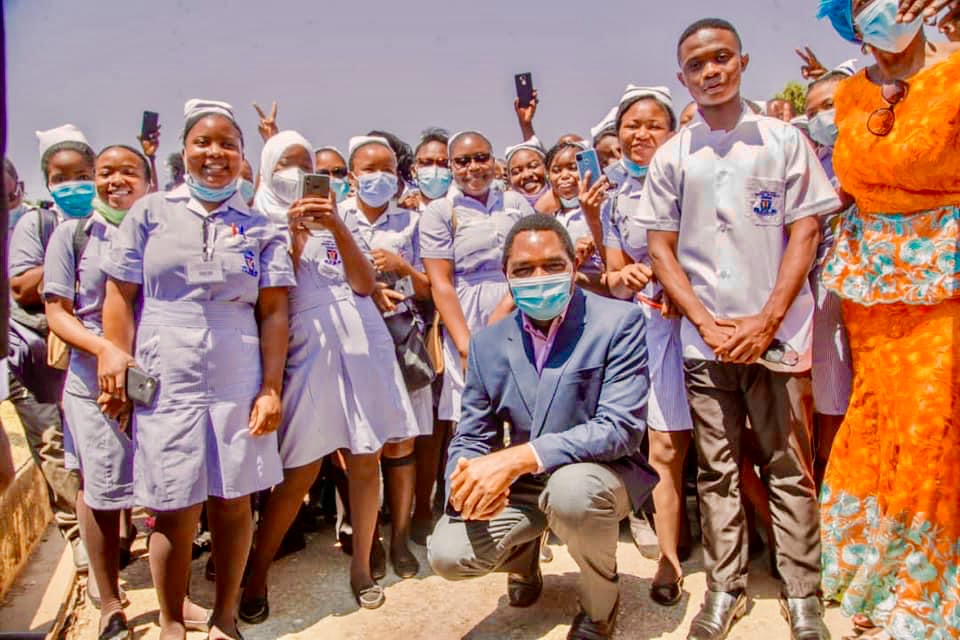Zambia’s Chief Investment Officer and Head of State Hakainde Hichilema on 07 October led the health authorities in relaunching the copper producers vaccination campaign efforts to curb COVID19 completely. This follows the recent anaemic vaccine levels under 5.0% against the targeted 70.0%. With currently low positivity rates of under 1.0% Zambian citizens have shied away from being inoculated against the deadly pandemic which nonetheless has caught the attention of the new government.
Officiating at the launch alongside Zambias new health minister Sylvia Masebo, President Hichilema bemoaned the low levels of vaccines in Zambia and Africa and echoed the need for stepped up efforts if the Southern African nation was to grow its economy effectively with a healthy workforce.
“However I note with deep concern that so far, Zambia has only fully vaccinated approximately 5.0% of the eligible population. Let us not wait for the forth wave to make the decision (to be vaccinated) as memories of the third waves are still fresh. We are determined to attaining universal access to quality healthcare as we believe that this is a precondition for the socio – economic development of our country. As your government, we see health as a key pillar to human capital development. COVID threatens the socio-development agenda as a country,” President Hakainde Hichilema said.
Zambias vaccination statistics as at 06 October stand at 447,308 (fully vaccinated) with positivity rate last recorded at 0.7%. Health authorities have continued to warn against a 4th wave as early as December urging citizenry to remain vigilant in masking up and observing other health protocols.
As a nation that is in support of the Sustainable Development Goals (SDG’s) Zambia will seek to actualize some of the pillars on healthcare by providing quality healthcare which include a stable supply of drugs (vaccines inclusive). With a few weeks to the national budget presentation to parliament, stakeholders will be keen on seeing how much will be allocated towards the health care sector especially after a devastating experience as the COVID19 pandemic rattled the public purse allocation to fighting healthcare bottlenecks at the expense of other productive sectors of the economy.
The Kwacha Arbitrageur

